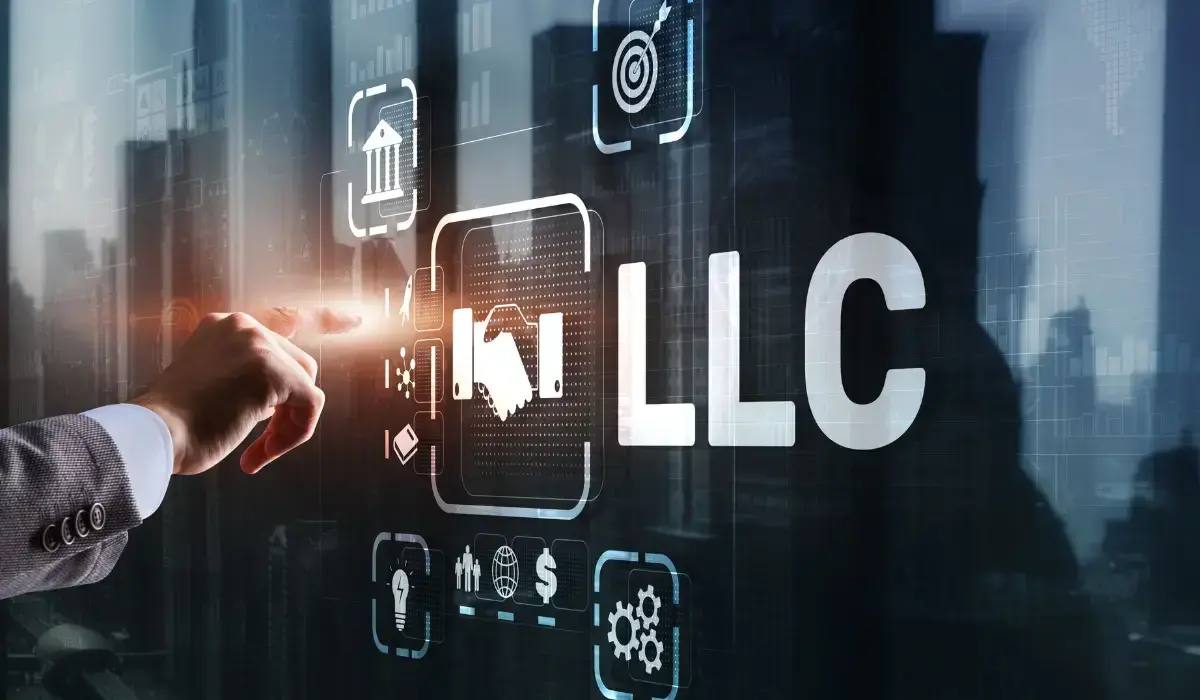When starting an eCommerce business, you might be excited about choosing your branding elements or building your eCommerce website, but you’re probably overlooking something. I’m talking about your business structure.
*Updated 8/17/2024
Choosing the proper business structure for your eCommerce business affects several things. It influences your daily operations and impacts taxes, personal liability, and the ability to raise capital.
Shortcuts:
- Key Considerations Before Choosing a Business Structure
- Sole Proprietorship
- Partnership
- Limited Liability Company (LLC)

Getting it right from the start can help you maximize your eCommerce business's potential, while the wrong choice could lead to complications.
So, what are your options? Below, we explore the main types of business structures available for eCommerce entrepreneurs and help you understand the pros and cons of each.
Key Considerations Before Choosing a Business Structure
Picking the right business structure for your eCommerce venture isn't a one-size-fits-all deal. Here are the crucial factors you need to weigh:
- Liability: How much personal risk are you comfortable with? If things go south, are you okay with your personal assets being on the line? If the answer is no, you should look beyond sole proprietorships and general partnerships. LLCs offer liability protection, keeping your personal assets safe from business creditors.
- Taxes: Each structure comes with its own tax implications. Sole proprietorships and partnerships offer simplicity, but you'll pay self-employment taxes (though self-employment tax deductions may help lower your liability), while LLCs can provide tax advantages depending on your situation. Consider consulting a tax pro to crunch the numbers for your specific case.
- Investment needs: If you're bootstrapping, simpler structures might suffice. But if you're eyeing venture capital, an LLC might be a more favorable option.
- Management: Sole proprietorships are a breeze to manage, while LLCs strike a balance, offering some structure without overwhelming complexity. Be honest about how much time and energy you can devote to administrative tasks.
- Future goals: Where do you see your eCommerce business in 5, 10, or 20 years? A sole proprietorship or LLC might be perfect if you plan to keep it small and manageable. Dreaming of going public someday? You'll want to think about incorporating. Additionally, consider how easy (or difficult) it would be to change your structure as you grow.
Remember, your business structure isn't set in stone. As your eCommerce business evolves, you can change your structure to fit your new reality.
The key is to choose a structure that supports your current needs while aligning with your future vision.
Sole Proprietorship

A sole proprietorship is the simplest and most common structure for new eCommerce businesses. With this structure, you and your business are one and the same.
You are entitled to all profits but are also responsible for all debts, losses, and liabilities. Sole proprietorships work particularly well for entrepreneurs who are just starting out for two main reasons:
- Simplicity: Starting a sole proprietorship is as easy as selling your products online. No formal registration process is required, and the paperwork is minimal. This makes sole proprietorships suitable for people with little experience starting a business.
- Control: A sole proprietorship gives you total control over your business. Every decision – whether you want to add new products, introduce a new payment method, experiment with QR code scanners for promos and discounts, incorporate multi-platform selling, or even change your site design and UX – is yours to make. This level of control can be incredibly freeing for independent entrepreneurs.
Unfortunately, since there’s no separation between you and the business, sole proprietorship puts your personal assets on the line. Your personal savings and property could be at risk if your business has debt or legal troubles.
Additionally, banks and investors often view sole proprietorships as less credible, making it harder to secure short-term loans or attract investment when you want to grow your business.
Sole proprietorships also face challenges in establishing credibility with suppliers and customers compared to more formal business structures.
A sole proprietorship is ideal for those one-person shows where you're testing the market or running a very small operation.
Partnership

A partnership is a business structure where two or more individuals own a business and share its responsibilities and profits. There are three types of partnerships, each with its characteristics and implications.
- General Partnership: In a general partnership, all partners manage the business and share responsibilities and liabilities equally. Each partner can make decisions and act on behalf of the business.
- Limited Partnership (LP): An LP comprises general and limited partners. General partners are responsible for managing the business and are personally liable for its debts. Limited partners, on the other hand, contribute capital and share profits but do not participate in day-to-day operations. Their liability is limited to their investment.
- Limited Liability Partnership (LLP): An LLP offers limited liability to all partners, protecting their personal assets from business debts and obligations.
Partnerships are great for growing your eCommerce venture quickly since they allow the partners to pool resources, skills, and capital.
As explored in the GovDocfiling guide, partnerships are a bit more flexible than a company.
Additionally, a partnership is less complicated to set up and run than a corporation, giving you more flexibility in operating.
On the flip side, in a general partnership, you're on the hook for your partner's business decisions. If they make a costly mistake, it could affect you, too.
All partners are jointly and severally liable for the business's debts and obligations.
There’s also the potential for disagreements and conflicts between partners, mainly if there is a lack of clear communication or differing visions for the business.
Partnerships are ideal for businesses started by two or more individuals who trust each other and have a shared vision.
However, a well-drafted partnership agreement is crucial for outlining roles, responsibilities, and conflict resolution strategies.
Limited Liability Company (LLC)

An LLC combines the tax benefits and flexibility of a partnership with the limited liability protection of a corporation.
Due to its versatility and protective benefits, this structure is popular among medium-sized eCommerce businesses.
One unique aspect of an LLC is that it is a separate legal entity from its owners. The eCommerce business can own property, enter contracts, and be held liable, while the owners enjoy limited personal liability.
Here are some reasons you should consider setting up your e-commerce business as an LLC:
- Personal asset protection: The main advantage of an LLC is that your personal assets are protected if your business faces debts or lawsuits.
- Flexible taxation: Unlike sole proprietorships, LLCs also enjoy flexible taxation. Depending on what works best for your situation, you can elect to be taxed as a sole proprietorship, a partnership, or choose a corporation tax (you won’t get taxed twice.)
- Perceived legitimacy: LLCs often appear more legitimate to customers, suppliers, and potential investors. That "LLC" at the end of your business name can lend an air of professionalism to your eCommerce venture.
Setting up an LLC involves more paperwork than starting up as a sole proprietor. While not as complex as corporations, LLCs also have more administrative requirements, as you'll need to keep your personal and business finances separate and maintain proper records.
LLCs are the sweet spot for many eCommerce businesses. They're perfect for medium-sized operations that want liability protection without the complexity of a corporation.
Suppose you plan to grow your eCommerce business by mimicking the scalability of SaaS companies, marketplace platforms, or subscription models.
An LLC can offer the right protection and tax flexibility balance in that case. If you need help, you can consult with LLC.org.
You can act as your LLC's registered agent, but many businesses prefer to hire a professional registered
agent service for privacy and convenience.
Try Shift4Shop to launch your eCommerce business.
Wrapping Up
Choosing the right business structure for your eCommerce venture is like picking the perfect pair of shoes for a long hike.
It must fit just right, support your goals, and help you navigate the terrain ahead. Whether you opt for the simplicity of a sole proprietorship, a partnership's combined responsibility, or an LLC's flexibility, your choice will shape your business's future.
Remember, there's no one-size-fits-all solution. Your ideal structure depends on your unique circumstances, aspirations, and risk tolerance.
Before you make your final decision, it's worth chatting with a good lawyer or tax advisor who can help you navigate the nuances and ensure you're setting yourself up for success.

Author Bio
Shanice Jones is a techy nerd and copywriter from Chicago. For the last five years, she has helped over twenty startups build B2C and B2B content strategies that have allowed them to scale their businesses and help users around the world.

